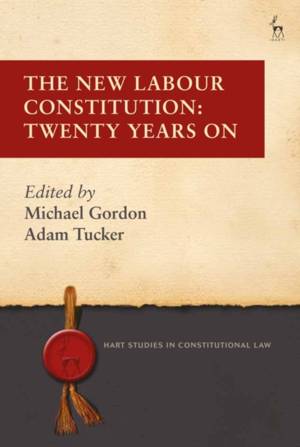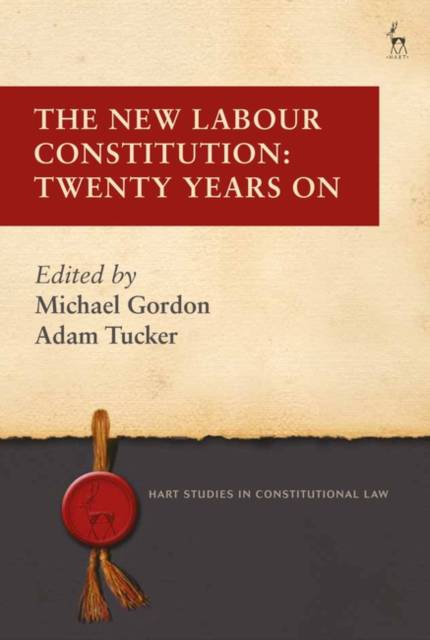
- Afhalen na 1 uur in een winkel met voorraad
- Gratis thuislevering in België vanaf € 30
- Ruim aanbod met 7 miljoen producten
- Afhalen na 1 uur in een winkel met voorraad
- Gratis thuislevering in België vanaf € 30
- Ruim aanbod met 7 miljoen producten
Zoeken
€ 228,95
+ 457 punten
Omschrijving
The New Labour government first elected in 1997 had a defining influence on the development of the modern UK constitution. This book combines legal and political perspectives to provide a unique assessment of the way in which this major programme of constitutional reform has changed the nature of the UK constitution. The chapters, written by leading experts in UK public law and politics, analyse the impact and legacy of the New Labour reform programme some 20 years on from the 1997 general election, and reveal the ways in which the UK constitution is now, to a significant extent, the 'New Labour constitution'.
The book takes a broad approach to exploring the legacy of the New Labour years for the UK constitution. The contributors evaluate a range of specific substantive reforms (including on human rights, devolution, freedom of information, and the judicial system), changes to the process and method of constitutional reform under New Labour, the impact on key institutions (such as the judiciary and Parliament), and a number of wider constitutional themes (including national security, administrative justice, and the relationship between the Labour Party and constitutionalism). The book also reflects on the future challenges for the constitution constructed by New Labour, and the prospects for further constitutional reform. In bringing together this range of perspectives to reflect on the implications of the New Labour era of reform, this book offers a critical examination of a foundational period in the development of the contemporary UK constitution.Specificaties
Betrokkenen
- Uitgeverij:
Inhoud
- Aantal bladzijden:
- 392
- Taal:
- Engels
- Reeks:
Eigenschappen
- Productcode (EAN):
- 9781509924646
- Verschijningsdatum:
- 10/03/2022
- Uitvoering:
- Hardcover
- Formaat:
- Genaaid
- Afmetingen:
- 156 mm x 234 mm
- Gewicht:
- 716 g

Alleen bij Standaard Boekhandel
+ 457 punten op je klantenkaart van Standaard Boekhandel
Beoordelingen
We publiceren alleen reviews die voldoen aan de voorwaarden voor reviews. Bekijk onze voorwaarden voor reviews.






